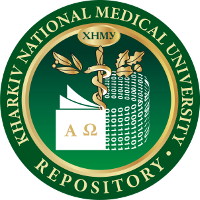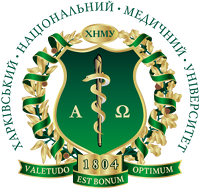Please use this identifier to cite or link to this item:
http://repo.knmu.edu.ua/handle/123456789/17173Full metadata record
| DC Field | Value | Language |
|---|---|---|
| dc.contributor.author | Batbold, U. | - |
| dc.contributor.author | Butov, Dmytro | - |
| dc.contributor.author | Kutsyna, G. | - |
| dc.contributor.author | Damdinpurev, N. | - |
| dc.contributor.author | Grinishina, Elena | - |
| dc.contributor.author | Mijiddorj, Otgonbayar | - |
| dc.contributor.author | Kovolev, Mikola | - |
| dc.contributor.author | Butova, Tetiana | - |
| dc.contributor.author | Sandagdorj, M. | - |
| dc.contributor.author | Zaitzeva, S. | - |
| dc.contributor.author | Stepanenko, H. | - |
| dc.contributor.author | Bourinbaiar, A. | - |
| dc.date.accessioned | 2017-08-09T08:27:23Z | - |
| dc.date.available | 2017-08-09T08:27:23Z | - |
| dc.date.issued | 2016-11-21 | - |
| dc.identifier.citation | Double-blind, placebo-controlled, 1:1 randomized Phase III clinical trial of Immunoxel honey lozenges as an adjunct immunotherapy in 269 patients with pulmonary tuberculosis / U. Batbold, D. O. Butov, G. A. Kutsyna, N. Damdinpurev, E. A. Grinishina, O. Mijiddorj, M. E. Kovolev, K. Baasanjav, T. S. Butova, M. Sandagdorj, O. Batbold, A. Tseveendorj, E. Chunt, S. I. Zaitzeva, H. L. Stepanenko, N. I. Makeeva, I. V. Mospan, V. S. Pylypchuk, J. L. Rowe, P. Nyasulu, V. Jirathitikal, A. I. Bain, M. G. Tarakanovskaya, A. S. Bourinbaiar // Immunotherapy. – 2017. – Vol. 9, № 1. – P. 13–24. | ru_RU |
| dc.identifier.uri | https://repo.knmu.edu.ua/handle/123456789/17173 | - |
| dc.description.abstract | Aim: Safer and shorter antituberculosis treatment (ATT) regimens represent the unmet medical need. Patients & methods: The patients were randomly assigned into two arms: the first (n = 137) received once-daily sublingual honey lozenge formulated with botanical immunomodulator Immunoxel and the second (n = 132) received placebo lozenges along with conventional ATT. Immunoxel and placebo arms were demographically similar: 102 versus 106 had drug-susceptible TB; 28 versus 20 multidrug-resistant TB (MDR-TB); 7 versus 7 extensively drug resistant TB (XDR-TB); and 22 versus 20 TB-HIV. The primary end point was sputum smear conversion. Results: After 1 month 87 out 132 (65.9%) of Immunoxel recipients became sputum smear negative, whereas 32 out of 127 (25.2%) in placebo group had converted (p < 0.0001). Sputum clearance produced by Immunoxel was equally effective across all forms of TB. In the immunotherapy arm the average weight gain was 2 kg, but placebo recipients gained only 0.6 kg. Immunoxel reduced TB-associated inflammation as evidenced by defervescence and normalization of elevated leukocyte counts and erythrocyte sedimentation rate. No adverse effects were seen at any time. The liver function tests indicate that ATT-caused hepatotoxicity was counteracted by Immunoxel. These results are in agreement with prior 20 trials of Immunoxel conducted over the past 17 years. Conclusion: Immunoxel is affordable, safe, effective, fast-acting, commercially available immunotherapeutic intervention to supplement conventional TB chemotherapy. | ru_RU |
| dc.language.iso | en | ru_RU |
| dc.publisher | Future Medicine | ru_RU |
| dc.subject | DOT | ru_RU |
| dc.subject | Human immunodeficiency virus (HIV) | ru_RU |
| dc.subject | HIV-TB | ru_RU |
| dc.subject | immunotherapy | ru_RU |
| dc.subject | MDR | ru_RU |
| dc.subject | Mycobacterium tuberculosis | ru_RU |
| dc.subject | XDR | ru_RU |
| dc.title | Double-blind, placebo-controlled, 1:1 randomized Phase III clinical trial of Immunoxel honey lozenges as an adjunct immunotherapy in 269 patients with pulmonary tuberculosis | ru_RU |
| dc.type | Article | ru_RU |
| Appears in Collections: | Наукові праці. Кафедра фтизіатрії та пульмонології | |
Files in This Item:
| File | Description | Size | Format | |
|---|---|---|---|---|
| Immunoxel in Immunotherapy 2016.pdf | 1,66 MB | Adobe PDF |  View/Open |
Items in DSpace are protected by copyright, with all rights reserved, unless otherwise indicated.

